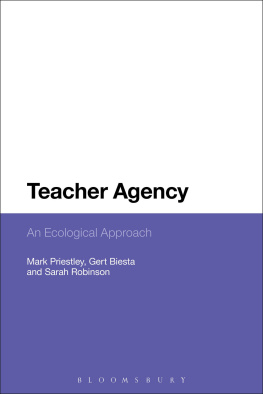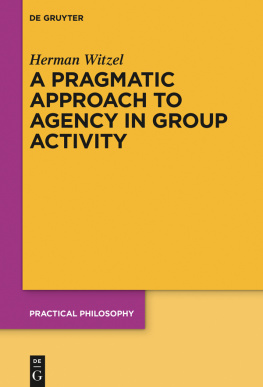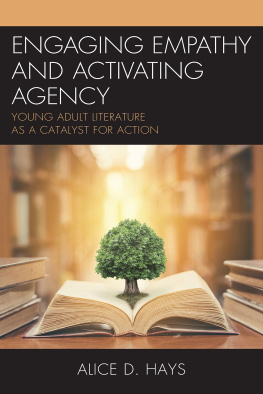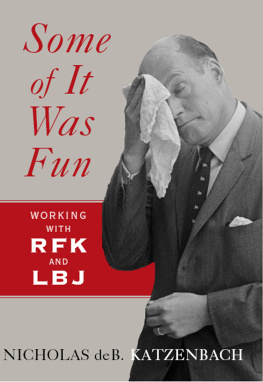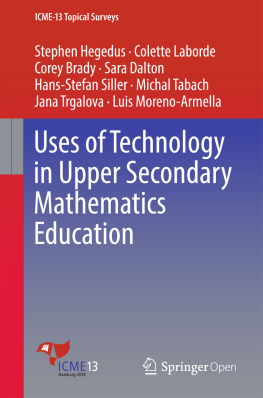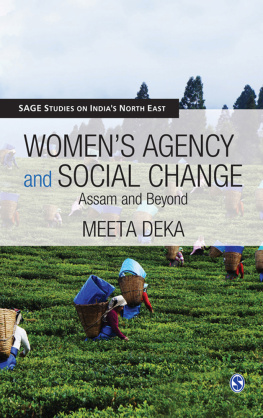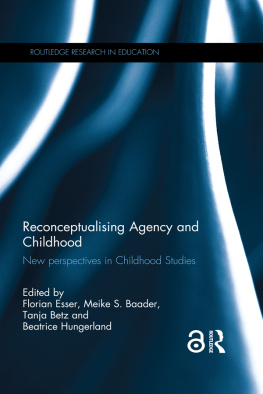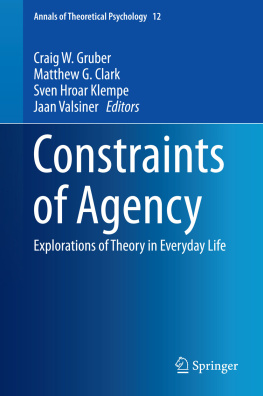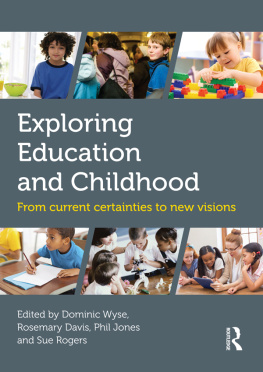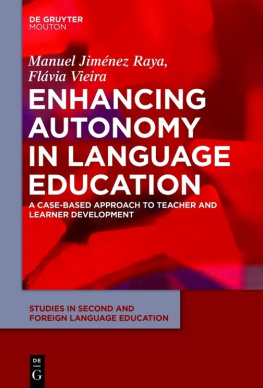Teacher Agency
Also Available from Bloomsbury
Reflective Teaching in Schools , by Andrew Pollard et al.
Readings for Reflective Teaching in Schools , edited by Andrew Pollard
Jacques Rancire: Education, Truth, Emancipation , by Charles Bingham and Gert Biesta
Reinventing the Curriculum , edited by Mark Priestley and Gert Biesta
Teacher Agency
An Ecological Approach
By Mark Priestley, Gert Biesta and Sarah Robinson
Bloomsbury Academic
An imprint of Bloomsbury Publishing Plc

Contents
Our warm thanks go to the six fantastic participating teachers and their colleagues, without whom this research and this book would not have materialized. Their continued enthusiasm made this project a delight from start to finish. We also acknowledge the funding from the Economic and Social Research Council (RES-000-22-420) which made this research possible.
Curriculum for Excellence is much more than a reform of curriculum and assessment. It is predicated on a model of sustained change which sees schools and teachers as co-creators of the curriculum.
(, p. 4)
There is an emerging tendency in education policy in the United Kingdom and elsewhere to acknowledge the importance of teachers agency, that is, of their active contribution to shaping their work and its conditions. For example, Scotlands Curriculum for Excellence which was published in 2004 and formally implemented in the 201011 school year and which is the context within which the research reported in this book is set explicitly sought to move away from a topdown approach to educational improvement towards one in which teachers play a central and crucial role. Indeed, as the quotation above suggests, teacher agency can even be viewed as an integral and essential part of such reforms. The Curriculum Review Programme Board formulated this intention as follows.
In the past, national curriculum developments have often been supported by central guidelines, cascade models of staff development and the provision of resources to support the implementation of guidance by teachers. Our approach to change is different. It aims to engage teachers in thinking from first principles about their educational aims and values and their classroom practice. The process is based upon evidence of how change can be brought about successfully through a climate in which reflective practitioners share and develop ideas. (, p. 4)
Approaches such as these mark a significant shift in the light of several decades of policies that worked to de-professionalize teachers by taking agency away .
But the (re)turn to teacher agency is not without problems. A key question is whether policy intentions are also followed through in practice, that is, whether teachers are indeed offered more space for professional agency. Offering such space is not only a matter of changing the structures within which teachers work something that to a large extent lies within the remit of politicians and policy makers but also raises questions about the cultures that shape the everyday practices of teachers work something which not only depends on those who regulate the context within which teachers do their work, but also depends on teachers own actions and activities, that is, on how they enact such cultures. In addition to structure and culture, there is also the question of individual and collective capacity . This is the question of whether teachers individually and collectively are still capable of being active agents of their own work, or whether this capacity has been eroded as a result of structures and cultures that sought to restrain rather than to enable teachers professional agency.
The chapters in this book are an attempt to shed some theoretical and empirical light on these matters. They are based on research conducted in the Teacher Agency and Curriculum Change project , which ran during 2011 and 2012 at the University of Stirling, Scotland, in partnership with a Scottish Local Authority.). This made it a particularly suitable context for the study of teacher agency. Simply put, the project focused on the ways in which and the extent to which experienced teachers achieve agency in their day-to-day working contexts against the background of the introduction of the new curriculum and on factors that promote or inhibit such agency.
We start this introductory chapter with some observations about what this book is not about, in order to delineate the question of teacher agency from other discussions and approaches that focus on the role and position of the teacher. We then provide some information about Curriculum for Excellence, the context within which the research was conducted. After this, we provide a description of the design of the research and its main features. We conclude with an overview of the chapters in the book and a preview of our main conclusions.
The particular approach to teacher agency we are offering in this book is termed an ecological approach (see also ). The main distinctive feature of this approach is that we do not see agency as a capacity of individuals, that is, as something individuals can claim to have or possess, but rather see it as something individuals and groups can manage to achieve or not, of course. Agency is therefore to be understood as resulting from the interplay of individuals capacities and environment conditions. This makes it important not just to look at individuals and what they are able or not able to do but also at the cultures, structures and relationships that shape the particular ecologies within which teachers work. It is the interaction between capacities and conditions that counts in making sense of teacher agency. This also means that any attempt to enhance teacher agency should not just focus on the capacities of individuals for example, through programmes of professional learning and development but should at the very same time pay attention to the factors and dimensions that shape the ecologies of teachers work.
Our exploration of teacher agency does not encompass everything there is to say about the role and position of the teacher or everything that has been said or currently is being said. It is therefore also important to make clear what this book is not about. Our interest in teacher agency should, for example, be distinguished from recent discourses in which it is argued, in a number of different ways, that teachers matter (e.g. ).
One influential line here, which has its background in school effectiveness and improvement research and which has recently become quite popular among politicians and policy makers, is the belief that the teacher is the most important factor in the educational process (see, for example, ). But there are a number of reasons why this particular take on the idea that teachers matter should not be conflated with the kind of teacher agency we are interested in.
One reason has to do with the fact that in this way of thinking the teacher is indeed seen as a factor and not as a thinking, judging and acting professional. To think of the teacher as a factor also reveals an underlying conception of education as a quasi-causal process, (on this see ), where teaching is seen as input and student performance as output; rather than that teaching is understood as a complex interactive process of communication, interpretation and joint meaning making where teacher judgement and decision-making are crucial. In addition to this, the suggestion of the teacher as the most important factor in the educational process tends to focus on a rather limited range of educational outcomes, most notably achievement in academic subjects, rather than taking into consideration a much broader range of educational dimensions and student achievements. Finally, the upshot of identifying the teacher as the most important factor in the production of certain educational outcomes is a situation where teachers are being blamed if not punished if their activities have not managed to make a measurable difference to the achievement of their students. Rather than enhancing and promoting teacher agency, this particular way of approaching the idea that teachers matter thus tends to work in the opposite direction, limiting and confining teachers space for professional judgement and action.
Next page
